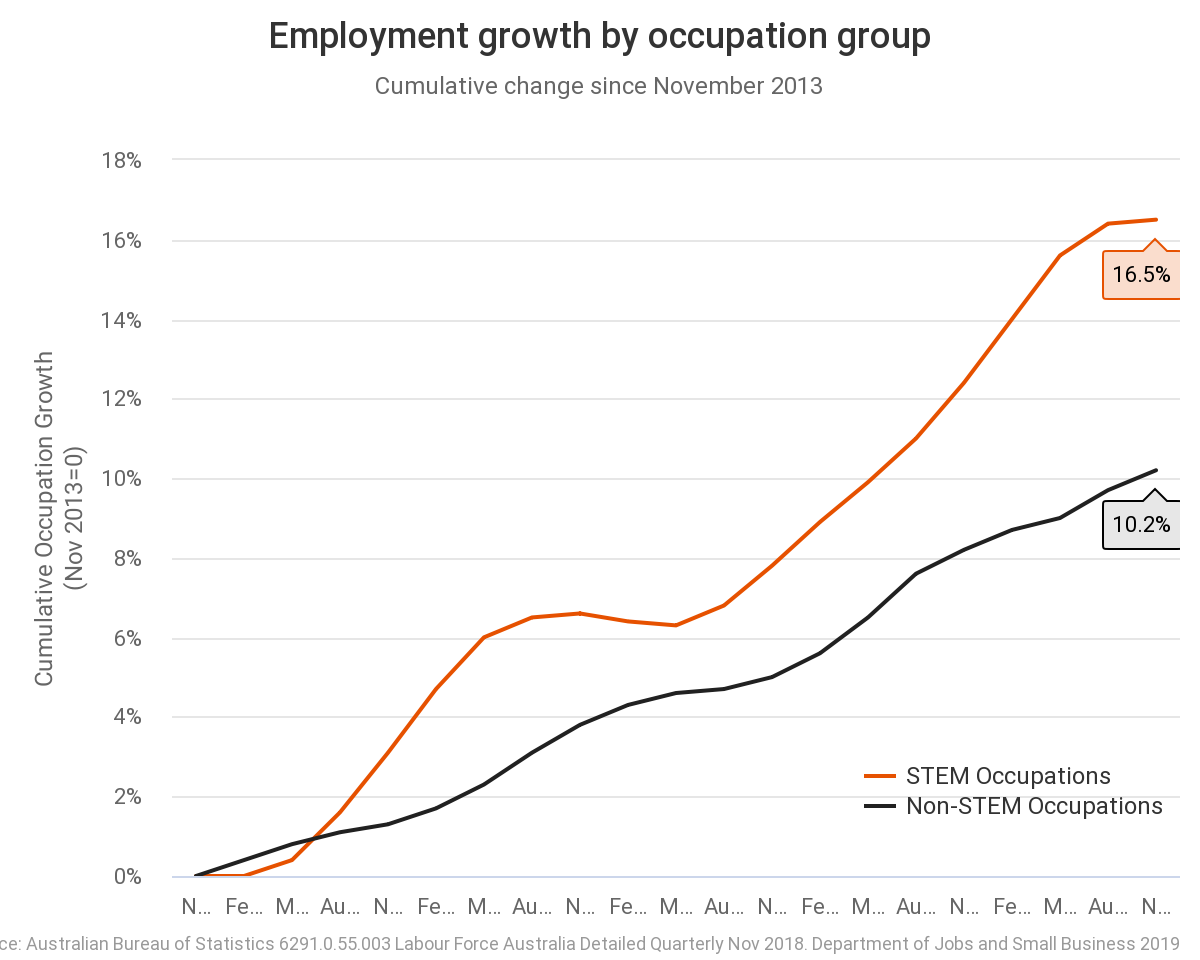
Ending the domino effect of maths anxiety
Research 8 Oct 2020 5 minute readResearch suggests reducing school students’ maths anxiety will help Australia build the strong STEM workforce needed for the 21st century. Florence Gabriel, Sarah Buckley and Abhinava Barthakur explain.
By mid-late secondary school, one-quarter to one-third of Australian students report feeling tense, nervous or helpless when dealing with mathematics. The short-term effect of this anxiety is a decline in maths achievement but the long-term impact is the development of a negative attitude towards maths and the avoidance of subjects, courses and careers that involve maths.
This a problem because demand for workers in science, technology, engineering and mathematics (STEM) fields has been increasing in Australia. A recent study published by the Australian Department of Jobs and Small Business showed that between 2013 and 2018, employment in STEM jobs grew 1.6 times higher than the growth rate in non-STEM occupations.

Yet while the need for mathematically capable workers is growing, the number of Australian students studying intermediate and advanced mathematics in senior secondary school remains consistently low, following declines in the 1990s and early 2000s.
One possible contributor to low enrolment in senior mathematics is growing maths anxiety among Australian students.
The maths anxiety domino effect
New analysis published in the Australian Journal of Education confirms that students with higher levels of maths anxiety tended to have lower levels of mathematical achievement.
The analysis of data from the 2012 Programme for International Student Assessment (PISA), the last time that mathematics was the major focus, also revealed higher levels of maths anxiety are associated with lower levels of:
- instrumental motivation (the degree to which students believe mathematics is important)
- self-concept (a student’s belief in their own mathematical abilities)
- perseverance (willingness to work on difficult problems)
- self-efficacy (students’ beliefs about their capability to solve maths problems).
Crucially, the research showed the domino effect of these variables upon one another. Using structural equation modelling, the data shows that low instrumental motivation and self-concept lead to maths anxiety, which affects perseverance, which in turn affects self-efficacy and negatively impacts mathematical achievement.
The results support research that shows a student’s maths anxiety may be alleviated by increasing their self-concept in mathematics. For instance, teachers could highlight what students are already able to do before attempting new challenges, emphasising to students that they should focus on past successes to track individual growth and changing the frame of references from the other to the individual, and helping students to appreciate the control they have over their achievements in mathematics.
One link in the chain reaction
At its core, maths anxiety is an emotional response thought to hinder the efficiency of the metacognitive processes by which learners plan, monitor, control, evaluate and adapt their behaviour to solve a task.
Metacognition, along with motivation, emotion and self-efficacy, plays an important role in the ability of students to self-regulate their learning. And self-regulated learning has been shown to have a positive and long-lasting impact on students’ academic development, employability and career progression. This is particularly true when studying and engaging with STEM content.
With evidence that motivational beliefs about maths are a crucial filter in decision making regarding STEM-related careers, it is critical that students are engaged with maths throughout senior secondary school. Interventions to reduce students’ maths anxiety will allow for the improvement of self-regulated learning skills in mathematics and, in turn, mathematics achievement.
By reducing students’ maths anxiety, developing their self-regulated learning skills and encouraging them to study mathematics, Australia can build a strong STEM workforce needed for the 21st century. ■
Read the full article:
'The impact of mathematics anxiety on self-regulated learning and mathematical literacy' by Florence Gabriel, Sarah Buckley and Abhinava Barthakur, is part of the Australian Journal of Education special issue, '20 Years of PISA in Australia: What can we say?', published by the Australian Council for Educational Research in association with SAGE.
Join the webinar:
On Wednesday 4 November 2020, the Australian Journal of Education will host a panel discussion with the several of the authors of the special issue, including Dr Florence Gabriel. Register for the free webinar '20 Years of PISA in Australia: an AJE special issue'.

